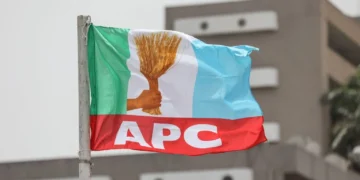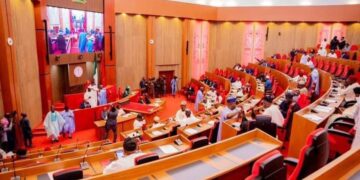By Eshioromeh Sebastian, Abuja
A distinguished legal scholar, Dr. Monday Ubani, (SAN) has said the Edo State governorship election petition tribunal’s ruling aligns with established Supreme Court precedents.
This is even as he said the ruling has also brought renewed focus to Section 137 of the Electoral Act 2022 – not as a matter of personal opinion, but as a definitive statement of current electoral jurisprudence.
Ubani explained that the tribunal’s decision, which dismissed the petition challenging the election outcome, strictly interpreted this controversial provision that was designed to simplify evidence requirements in election cases.
He said while the tribunal’s interpretation follows established Supreme Court precedents, but other legal analyses show, this may be an opportune moment to revisit whether the law in its current form best serves Nigeria’s democracy.
Ubani said: “The tribunal noted that merely submitting documentary evidence without accompanying testimony amounted to “dumping” documents on the tribunal, which is insufficient to prove allegations of non-compliance.
“Section 137 of the Electoral Act 2022 was designed to alleviate the burden on petitioners by allowing them to rely on original or certified true copies of documents that manifestly disclose non-compliance, without the necessity of calling oral evidence.
“However, judicial interpretations have varied regarding this provision. In the case of Oyetola v. INEC, the Court of Appeal held that the decision to require oral evidence rests with the judge and cannot be overridden by statutory provisions like Section 137. This position was upheld by the Supreme Court, effectively limiting the application of Section 137.
“Given these precedents, the tribunal’s stance in the Edo governorship dispute aligns with higher court rulings, emphasising that while Section 137 aims to simplify evidentiary requirements, the courts retain discretion to determine the necessity of oral testimony. Therefore, the tribunal’s approach does not contradict Section 137 but reflects the judiciary’s interpretation that documentary evidence alone may not suffice without corroborative oral evidence”, he explained.
According to him, while the tribunal’s decision is consistent with prevailing legal principles, the deeper challenge rests with legislative intent. To truly reform electoral dispute resolution, Section 137 must be strengthened to fulfill its original objective, reducing unnecessary procedural barriers for petitioners.
“In the light of this position, if we as a country desires to solve the problem of discarding calling polling units’ agents in every units where there is an alleged irregularity by relying on documentary evidence to prove the Petitioner’s case, we may have to AMEND SECTION 137 OF THE ACT further to actualize the true intent of that Section.
“For now the Supreme Court’s decision of that Section binds every lower courts in the land including the same Supreme Court that made the said decision in the first place, unless the supreme court overrules itself subsequently”, Ubani concluded.
The Edo State Governorship Election Petition Tribunal yesterday dismissed the petition filed by the Peoples Democratic Party (PDP) and its candidate, Asue Ighodalo, reaffirming a strict judicial stance on evidentiary requirements in election disputes.
The tribunal ruled that the petitioners failed to substantiate their allegations of electoral non-compliance, as they relied solely on documentary evidence without calling competent witnesses to authenticate their claims.
The PDP candidate, Asue Ighodalo, has announced his intention to challenge the ruling in the Court of Appeal in the coming days.












































Discussion about this post